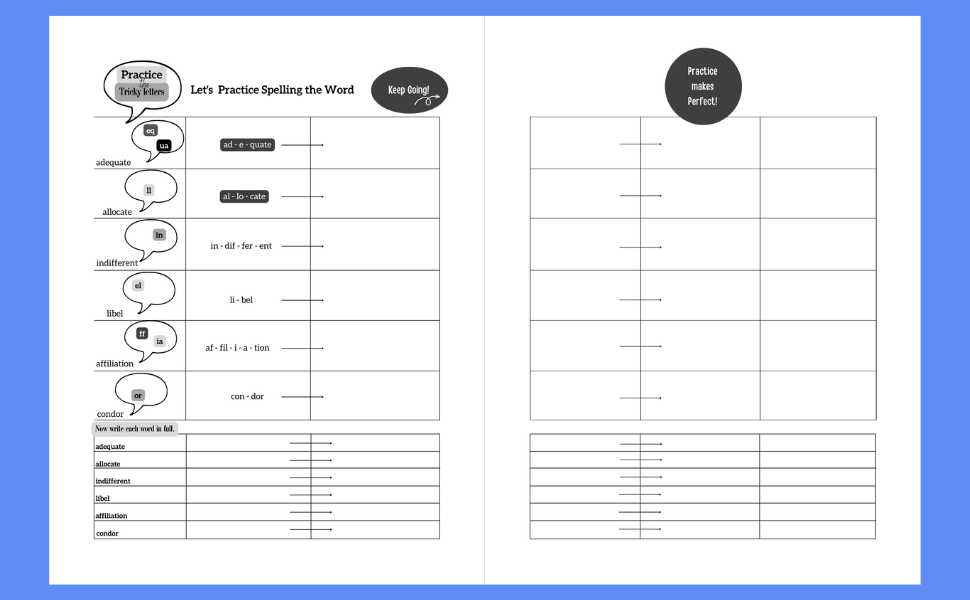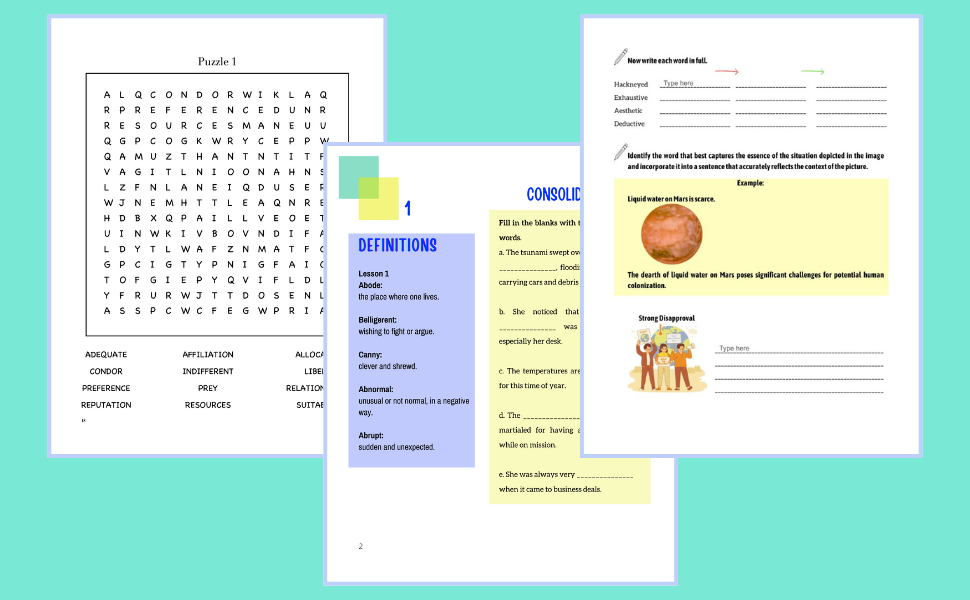How to Improve your 7th Grader’s Vocabulary and Spelling
As your child progresses through their academic journey, the importance of a robust vocabulary and strong spelling skills cannot be overstated. Spelling skills are not just crucial for English Language Arts (ELA) classes but are foundational for effective communication and comprehension in all subjects.
The Importance of Syllabification
Syllabification, the process of breaking words down into syllables, is a powerful tool for improving spelling proficiency. By understanding the structure of words, students can more easily decode unfamiliar words and spell them correctly.
How Syllabification Helps:
- Improved Phonetic Understanding: Recognizing syllables helps students understand how words are constructed, making it easier to spell them correctly.
- Enhanced Memory Retention: Breaking words into smaller parts makes them easier to remember and spell.
- Aid in Pronunciation: Proper syllabification aids in pronunciation, reinforcing the correct spelling of words.

The Importance of Brief but Varied and Repeated Spelling Activities
Children often retain information better through varied and repeated activities rather than prolonged sessions focused on a single method. Short, engaging activities can make learning spelling more enjoyable and effective.
Effective Activities Include:
- Spelling Bees: Organize small, friendly competitions to motivate your child.
- Word Games: Use games like Scrabble or Boggle to make spelling fun.
- Flashcards: Create flashcards with vocabulary words on one side and definitions on the other.
- Writing Prompts: Encourage your child to use new vocabulary words in creative writing exercises.
These activities should be brief to keep your child’s attention and varied to reinforce learning through different modalities.

Regular Scheduling of Vocabulary and Spelling Practice
Consistency is key to mastering vocabulary and spelling. Establish a regular practice schedule to ensure these skills are continuously developed.
Tips for Scheduling:
- Daily Practice: Dedicate 10-15 minutes each day to spelling and vocabulary practice.
- Weekly Reviews: At the end of each week, review the words and concepts learned to reinforce retention.
- Integrate into Daily Routine: Encourage your child to use new vocabulary words in daily conversations or writing.
Consistency not only helps in retention but also builds a habit that fosters lifelong learning.
The Importance of Reading
Reading is one of the most effective ways to enhance vocabulary and spelling. Exposure to a wide range of texts helps students encounter new words in context, which aids in understanding and retention.
Reading Strategies:
- Diverse Materials: Provide a variety of reading materials, including books, magazines, and online articles.
- Reading Aloud: Encourage your child to read aloud, which can improve pronunciation and reinforce spelling.
- Discussion: After reading, discuss the content and new words to deepen comprehension and retention.
Whether your child prefers short stories or long novels, regular reading will naturally expand their vocabulary and improve their spelling.
Additional Tips
- Word of the Day: Introduce a “word of the day” to build vocabulary gradually. Discuss the word’s meaning, usage, and spelling.
- Contextual Learning: Encourage your child to learn words in context rather than in isolation. Understanding how words function in sentences helps with both spelling and usage.
- Use Technology: Leverage educational apps and online resources that offer interactive vocabulary and spelling games.
- Positive Reinforcement: Celebrate your child’s progress to keep them motivated. Positive reinforcement can significantly boost their confidence and willingness to learn.